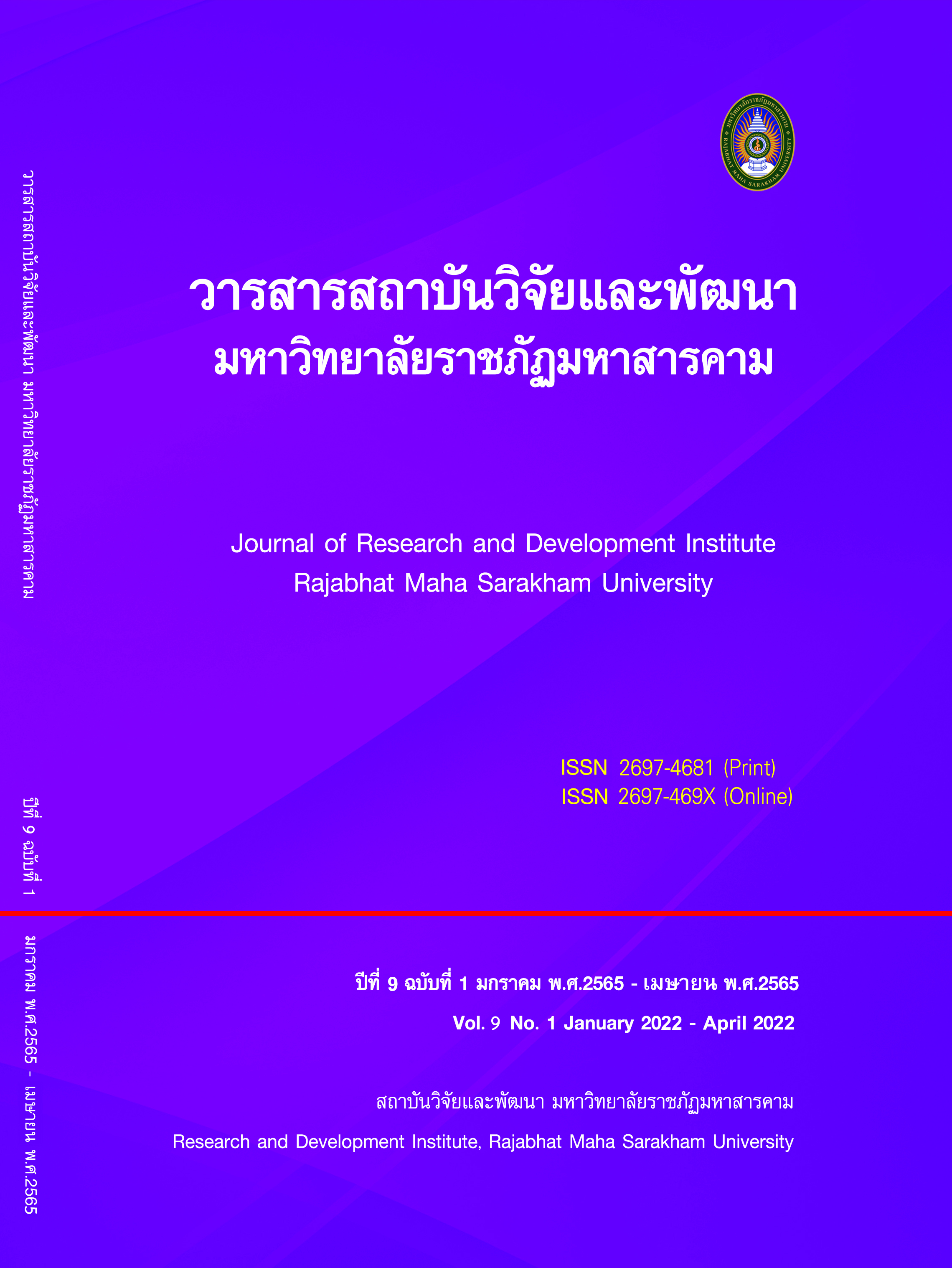Developing of Active learning activities Good Citizenship in Democracy Grade 3
Keywords:
for organizing proactive learning activities, Academic achievement, The ability to think criticallyAbstract
This research aims to 1). Develop proactive learning activities on good citizens in a democratic way of grade 3 students to be effective according to the 80/80 criteria. 2). Comparison of academic achievement. before and after school of students who received proactive learning activities on good citizens in a democratic way. 3). Compare analytical thinking abilities Before and after school of students who received proactive learning activities on good citizens in a democratic way. 4). Study on satisfaction of Prathomsuksa 3 students towards proactive learning activities on good citizenship in a democratic way.
The sample group includes Prathomsuksa 3 students in 1 classroom with a total of 17 students in Ban Don Ko School. Those studied in the second semester of the academic year 2020 were obtained by Cluster random sampling. Research tools include 1). Plans for proactive learning activities on good citizens in a democratic way Grade 3, 10 plans 2).An achievement test, a choice of 20 questions,3). A test to measure the ability to think critically, a 3-choice test, 15 items 4). Questionnaire on student satisfaction with learning It is a 3-level rating scale with 15 items. The statistics used in the data analysis were percentage,mean,standard deviation,and t–test (Dependent Samples) statistics. The results showed that 1). A total of 10 learning management plans were obtained. The mean values ranged from4.56 to 4.84, which was the most appropriate, and the efficiency finding was 80.82/92.35 which satisfies the set criteria (80/80). Grade 3 after school was significantly higher than before at the .05 level. 3). The ability to think critically. Post-study was significantly higher than before at the statistical significance of .05 at the level of .05. 4). The students were satisfied with the proactive learning activities on the subject of good citizens in a democratic way. Grade 3 as a whole is at a high level. ( = 2.59, = 0.25)
References
Chumwuttisak, K. & Silanoi, L. (2014) The Developing Grade 5 Students’s Analytical Thinking Skill and Attitude Towards Democratic Citizenship in The Learning Unit on “Good Citizen in A Democracy” Social Studies S15101 Course, Using Game-Based-Learning. Journal of Education Khon Kaen University, Vol. 38 No. 4 (2015): October – December.
Dechakup, P. & Yindeesuk, P. (2015). Integrated proactive learning. Bangkok: Chulalongkorn University.
Jumnongpol, W., et al. (2015) A study of learning achievement and problem solving ability of grade 2 students civics, culture and living in society strand using problem solving process. Journal of Education Naresuan UniversityVol. 21 No. 1 (2019): January – March.
Ministry of Education. (2008). Basic Education Curriculum 2008. Subject matter and standards for learning social studies, religion and culture. Bangkok: Shipping and Package Organization.
National Institute of Educational Testing Service (Public Organization). (2016). total score of O-net 59. [Online]. www.newonetresult.niets.or.th/.../PDF/SummaryONETP6_2016.pdf. [5 April 2020]
Phramaha Aphinan Nandabhani (Khamhanphon). (2019). Development of learning achievement using active Learning on the civic duties for 2nd secondary school Students at wat salameechai municipal school, mueang District, Nakhon Si Thammarat province. Bangkok: Mahachulalongkornrajavidyalaya University.
Suikraduang, A. (2014). Educationl Research. Maha Sarakham: Maha Sarakham Rajabhat University.
Downloads
Published
How to Cite
Issue
Section
License
Copyright (c) 2022 Journal of Research and Development Institute Rajabhat Maha Sarakham University

This work is licensed under a Creative Commons Attribution-NonCommercial-NoDerivatives 4.0 International License.
Articles that are published are copyrighted by the authors of the articles







